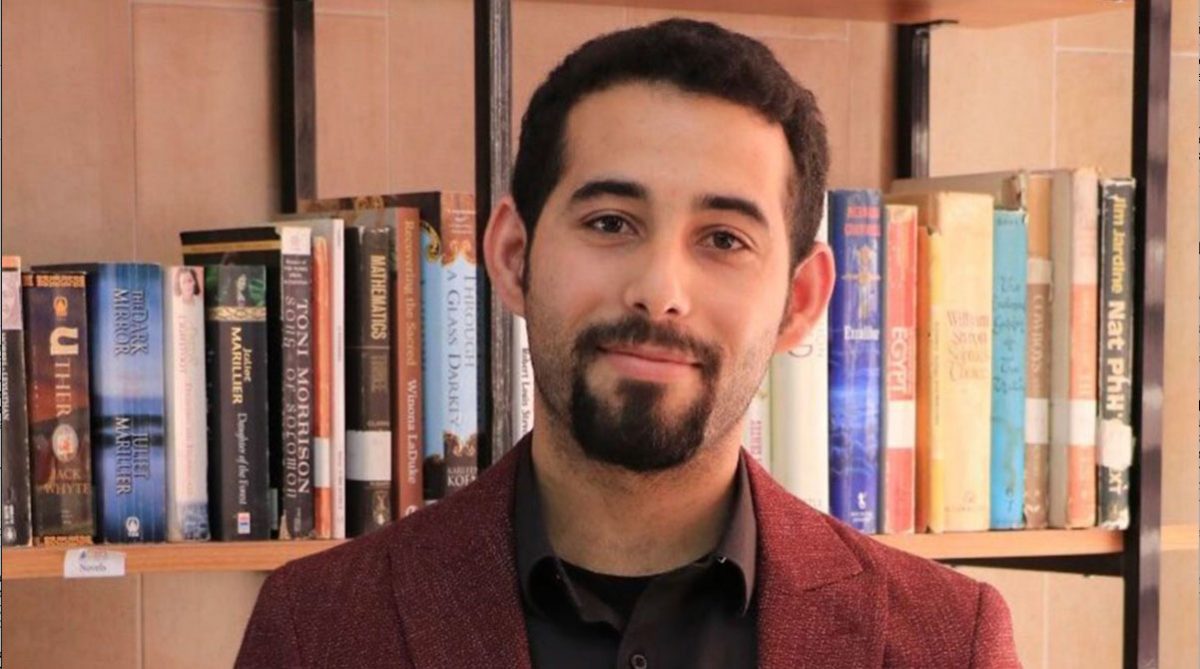 It is interesting to read poems by Palestinian poet Mosab Abu Toha, who was awarded the Derek Walcott Prize for Poetry 2023. The Derek Walcott Prize is an international award presented by Arrowsmith Press and this year was selected by the adjudicator, St Lucian writer Canisia Lubrin, earned by Mosab on the strength of his collection Things You May Find Hidden In My Ear (City Lights Books, 2022).
It is interesting to read poems by Palestinian poet Mosab Abu Toha, who was awarded the Derek Walcott Prize for Poetry 2023. The Derek Walcott Prize is an international award presented by Arrowsmith Press and this year was selected by the adjudicator, St Lucian writer Canisia Lubrin, earned by Mosab on the strength of his collection Things You May Find Hidden In My Ear (City Lights Books, 2022).
As it turns out, this year’s prize winner has become an extremely significant poet in the context of world poetry at the present time. His prominence was escalated by his Palestinian nationality and identity and the fact that he was recently resident in Gaza. His most recent poems have reflected the terrified existence in Gaza under the barrage of Israeli bombings, and he became directly embroiled in the conflict.
The entire story of Mosab Toha was most recently unfolded in narratives circulated by St Lucian poet John Robert Lee in his priceless series of e-mail revelations in what has become a major newsletter and a link that has brought together the major players in West Indian literature. Through these interactions Mosab’s story has been related by Loretta Collins and has included additions and comments from such commentators as Gerty Dambury, Honor Ford Smith, Rawan Mohamed and Adam Lowe of Peepal Tree Press.
Mosab was fleeing from Northern to Southern Gaza with his family of a wife and three children when he was stopped on the border with Egypt and detained by the Israeli army. While his family was allowed to proceed, he was held captive and many became concerned when nothing was heard of him for a while. The commentators mentioned above and other concerned activists began mobilising international support and action. He eventually managed to make contact while still in captivity and subsequently, news came that he had been released. He was re-united with his family and they have left Palestine and gone to the USA where they will find residence under a Scholar-at-risk fellowship granted to him.
This is how Canisia Lubrin’s citation describes Things You May Find Hidden In My Ear. “Here is a book which revels at an impossible pitch, the potent will to live heart-first in confrontation with life under brutal siege. Things You May Find Hidden in My Ear is a supertonic glossary of sorrows so extreme it bends the brace of language into fortifying, never-naïve, elegy. Toha’s meticulous, and often brief, lines thread his own breathing witness into a poetry of mighty resolve, insisting poetry itself be worthy of a Palestinian lament. Toha insists on these songs, holding each by their own powerful weight and bond, into this rippling of a future out beyond the page. This is a work of great restraint and abundant attention presented as always waiting in the routine arrangements of the day-to-day. Such grace and understanding, daring because necessary, necessary because how powerful it is to hear a voice cut so sharply through today. So haunting, so searing, and above all, so lit by Mosab Abu Toha’s vibrant—what else to call it?—love.”
The poet said in an interview with Ammiel Alcalay: “When you are a poet, you need to be saying something that cannot be said by other people…. When I tell my story— to anyone—it’s as if I’m reciting poetry.”
A Rose Shoulders Up
Don’t ever be surprised
to see a rose shoulder up
among the ruins of the house:
This is how we survived.
Mosab Abu Toha
Realize Your
Dream
Close your eyes and
walk on the ocean.
Dabble your hands
in the water
and
catch your poem’s words.
Write the words up on
the clouds.
Don’t worry, they will find
their land.
Open your eyes.
In the night,
the sea is no longer blue.
Look around and from
the descending
raindrops
pick your punctuation marks.
Put on your swimsuit,
dive deep down
and look for a title
for your epic.
Embark on your
moving homeland—
your boat.
Go to your bed
and, in your sleep,
begin to memorize
your dream.
Mosab Abu Toha









